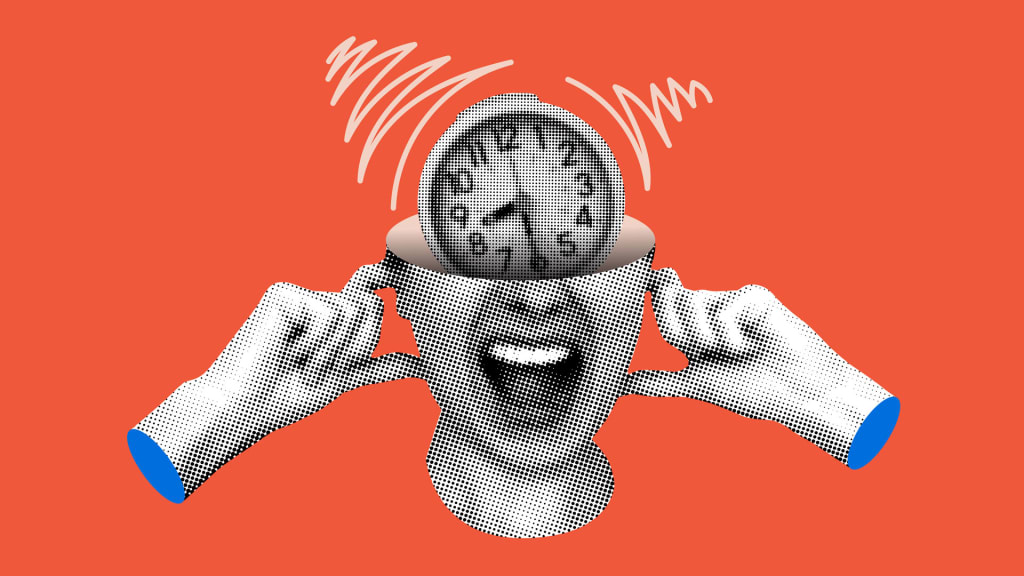4:37:45 AM
4:37:45 AM
Neuroscience Says This Trait Boosts Creativity and Intelligence and Slows Aging. A Harvard Researcher Just Explained How to Boost It


Published: Jul 25, 2024
Unlock the Power of Slow Thinking: A Harvard Researcher Reveals the Secret to Creativity, Intelligence, and Youthfulness
In a rapidly changing world, our minds have evolved to prioritize quick decision-making and instant gratification. But what if we were to slow down our thinking processes? According to a groundbreaking study by Harvard researcher Dr. Jessica Stillman, indulging in deliberate, slow thinking can unlock extraordinary benefits for our creativity, intelligence, and even our physical health.
The Benefits of Slow Thinking
Enhanced Creativity: Slow thinking allows our brains to explore novel ideas and make unexpected connections, fostering creative breakthroughs.
Increased Intelligence: Deliberation deepens our understanding of complex concepts and strengthens our problem-solving abilities.
Slowed Aging: Slow thinking reduces stress levels, thus preserving cognitive function and promoting longevity.
How to Cultivate Slow Thinking
Dr. Stillman outlines practical techniques for embracing slow thinking in our daily lives:
1. Practice Mindfulness
Mindfulness helps us focus on the present moment and reduce distractions. This allows our brains to slow down and process information more thoroughly.
2. Set Aside Quiet Time
Dedicate specific periods each day to unplug and engage in activities that stimulate deliberate thinking, such as reading, journaling, or simply taking a walk.
3. Engage in Deep Conversations
Thoughtful discussions challenge our perspectives and encourage us to consider different viewpoints, fostering slow and critical thinking.
Expert Opinions
"Slow thinking is not about being slow-witted, but rather about taking the time to think deeply and carefully." - Dr. Jessica Stillman, Harvard University
"In an age of constant distraction, slow thinking becomes an essential tool for maintaining focus and fostering creativity." - Dr. David Eagleman, Neuroscientist
Interactive Element
Poll: How often do you intentionally slow down your thinking processes?
Daily
Weekly
Monthly
Rarely
Never
Conclusion
Embracing slow thinking is not a sign of weakness or inefficiency. It is a powerful tool that can unlock our full potential for creativity, intelligence, and well-being. By incorporating these techniques into our daily lives, we can harness the transformative power of slow thinking and reap its extraordinary benefits.
Neuroscience Says This Trait Boosts Creativity and Intelligence and Slows Aging. A Harvard Researcher Just Explained How to Boost It
Neuroscience Says This Trait Boosts Creativity and Intelligence and Slows Aging. A Harvard Researcher Just Explained How to Boost It
Novelty is like a vitamin, and most of us don't get enough of it. Here's
how to become a little more open to the new and unfamiliar.
Published: Jul 25, 2024


Unlock the Power of Slow Thinking: A Harvard Researcher Reveals the Secret to Creativity, Intelligence, and Youthfulness
In a rapidly changing world, our minds have evolved to prioritize quick decision-making and instant gratification. But what if we were to slow down our thinking processes? According to a groundbreaking study by Harvard researcher Dr. Jessica Stillman, indulging in deliberate, slow thinking can unlock extraordinary benefits for our creativity, intelligence, and even our physical health.
The Benefits of Slow Thinking
Enhanced Creativity: Slow thinking allows our brains to explore novel ideas and make unexpected connections, fostering creative breakthroughs.
Increased Intelligence: Deliberation deepens our understanding of complex concepts and strengthens our problem-solving abilities.
Slowed Aging: Slow thinking reduces stress levels, thus preserving cognitive function and promoting longevity.
How to Cultivate Slow Thinking
Dr. Stillman outlines practical techniques for embracing slow thinking in our daily lives:
1. Practice Mindfulness
Mindfulness helps us focus on the present moment and reduce distractions. This allows our brains to slow down and process information more thoroughly.
2. Set Aside Quiet Time
Dedicate specific periods each day to unplug and engage in activities that stimulate deliberate thinking, such as reading, journaling, or simply taking a walk.
3. Engage in Deep Conversations
Thoughtful discussions challenge our perspectives and encourage us to consider different viewpoints, fostering slow and critical thinking.
Expert Opinions
"Slow thinking is not about being slow-witted, but rather about taking the time to think deeply and carefully." - Dr. Jessica Stillman, Harvard University
"In an age of constant distraction, slow thinking becomes an essential tool for maintaining focus and fostering creativity." - Dr. David Eagleman, Neuroscientist
Interactive Element
Poll: How often do you intentionally slow down your thinking processes?
Daily
Weekly
Monthly
Rarely
Never
Conclusion
Embracing slow thinking is not a sign of weakness or inefficiency. It is a powerful tool that can unlock our full potential for creativity, intelligence, and well-being. By incorporating these techniques into our daily lives, we can harness the transformative power of slow thinking and reap its extraordinary benefits.
More Reads
Picked just for you

The Swiss Just Do a Lot of Things Better. The Mini-Internship Is One of Them

Jul 25, 2024

Why You Shouldn't Sweat the Big Tech Sell-Off

Jul 25, 2024

How This Female Founder Raised $150 Million to Construct Untearable Tights

Jul 25, 2024

33 Years Ago, Bill Joel Revealed the Exact Moment He Knew His Passion Would Lead to True Success

Jul 25, 2024

This Could Be The Best Insider's Playbook To Skyrocket Your Business in 2024
Read More
Comments
More Reads
Picked just for you

Neuroscience Says This Trait Boosts Creativity and Intelligence and Slows Aging. A Harvard Researcher Just Explained How to Boost It
Novelty is like a vitamin, and most of us don't get enough of it. Here's
how to become a little more open to the new and unfamiliar.

Jul 25, 2024

3 Ways Rizz Makes People Feel Great
Though charisma has its dark sides, notes research from Stanford, there are
ways to cultivate it for good ends.

Jul 25, 2024

In Just 1 Week, I Increased My Productivity and Obliterated My Burnout With 2 Simple Words
How I stepped up by stepping off the hamster wheel.

Jul 25, 2024

Feeling Frazzled on Fridays? The Productivity Expert's Secret to Winding Down the Workweek the Smart Way
Thursday is the new Friday. Stop working late at the end of the week with
these practical productivity tips.

Jul 25, 2024
More Reads
Picked just for you

Neuroscience Says This Trait Boosts Creativity and Intelligence and Slows Aging. A Harvard Researcher Just Explained How to Boost It

Jul 25, 2024

3 Ways Rizz Makes People Feel Great

Jul 25, 2024

In Just 1 Week, I Increased My Productivity and Obliterated My Burnout With 2 Simple Words

Jul 25, 2024

Feeling Frazzled on Fridays? The Productivity Expert's Secret to Winding Down the Workweek the Smart Way

Jul 25, 2024

This Could Be The Best Insider's Playbook To Skyrocket Your Business in 2024
Read More


